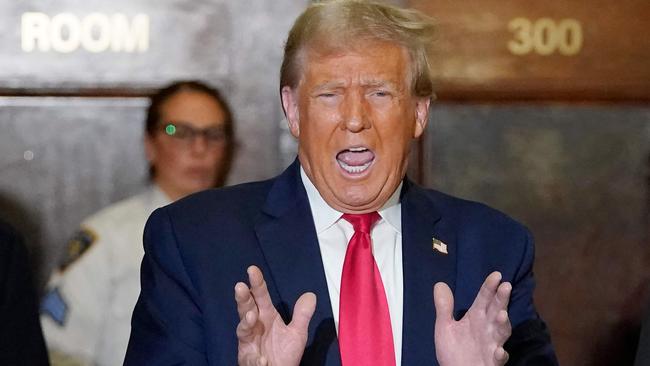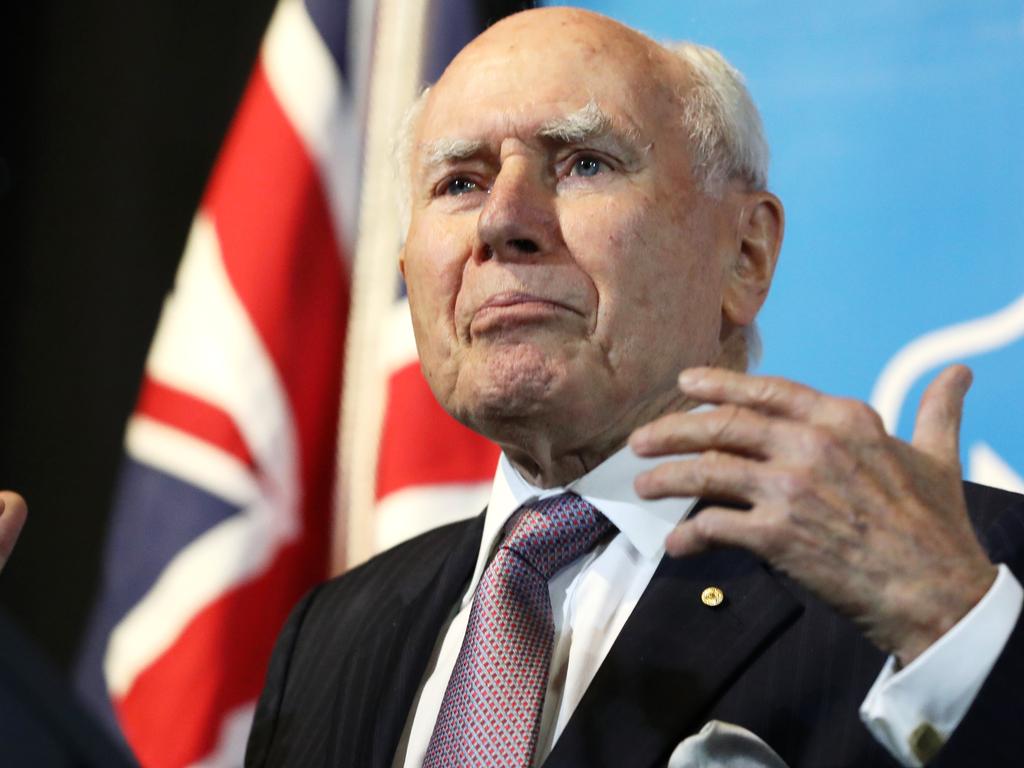Donald Trump asks US Supreme Court to overturn Colorado ballot ban
Trump’s appeal was expected, as other states also weigh whether a 14th Amendment provision barring insurrectionists from federal office applies to him.

Former President Donald Trump asked the US Supreme Court to overturn the decision by Colorado’s highest court removing him from the state’s 2024 presidential primary ballot because of his actions surrounding the Jan. 6, 2021, riot at the US Capitol.
“In the context of the history of violent American political protests, Jan. 6 was not insurrection and thus no justification for invoking Section 3,” Trump’s brief argues, referring to the 14th Amendment provision barring individuals who engaged in insurrection or rebellion after swearing an oath to the Constitution from holding public office.
The brief cited Trump’s use of the word “peaceful” several times in his public statements on Jan. 6 to rebut findings by Colorado courts that he engaged in insurrection by encouraging a mob of his supporters to attack the Capitol where Congress was meeting to certify President Biden’s victory in the November 2020 election.
Additionally, Trump argued that it is for Congress rather than state courts to determine whether Section 3’s conditions are met and that the president shouldn’t be classified as an officer of the U.S. for 14th Amendment purposes.
The justices, the brief said, should “summarily reverse the Colorado Supreme Court’s ruling, and return the right to vote for their candidate of choice to the voters.” Eric Olson, a lawyer representing Republican and independent voters in Colorado who sought Trump’s disqualification, promised a vigorous defence of the state court’s decision. “We are reviewing Trump’s appeal and will be filing our response tomorrow to ensure the Colorado Supreme Court’s historic ruling stands,” Olson said.
Trump had said he would appeal the historic Dec. 19 ruling by the Colorado Supreme Court, which deemed him an insurrectionist and therefore ineligible to hold public office. The Colorado court halted its ruling from taking effect until Thursday to give the former president and current Republican frontrunner an opportunity to appeal. The Colorado Republican Party earlier asked the Supreme Court to reverse the ruling.
The high court is widely expected to agree to hear Trump’s appeal to provide clarity on Trump’s eligibility, which has divided state judges and officials.
Michigan’s Supreme Court ruled on Dec. 27 that Trump could appear on the ballot in that closely contested state, and California has kept the former president on its primary ballot. But Maine’s top election official, a Democrat, on Dec. 28 barred Trump from appearing on that state’s primary ballot. Trump lodged an appeal of that decision in a Maine state court on Tuesday.
“The court can’t let state supreme courts make a patchwork of decisions, ” said Jessica Levinson, a professor at Loyola Law School in Los Angeles, after Colorado’s Dec. 19 ruling. “The case brings up an important federal constitutional question with time-sensitive consequences. They will need to act, and act quickly.” Trump’s lawyers say he was denied due process in the Colorado proceedings and is being penalised for constitutionally protected free speech. They argue the Colorado Supreme Court’s 4-3 decision sets a dangerous precedent that could embolden state election officials around the country to disqualify candidates for partisan reasons.
The Colorado case is one of a handful around the country that considered whether the Republican frontrunner should be barred from the ballot under Section 3 of the 14th Amendment. Enacted after the Civil War, the provision disqualifies from public office those who swore to defend the Constitution and then “engaged in insurrection or rebellion” against the U.S.
The Colorado Supreme Court’s ruling threw an unexpected jolt of uncertainty into the 2024 presidential contest and placed the U.S. Supreme Court in the uncomfortable position of having to resolve unprecedented legal issues that also ignite strong political passions among the nation’s electorate, as it did in Bush v. Gore in 2000.
In the Colorado case, a group of voters alleged that Trump’s speeches, social-media posts and other statements in the run-up to Jan. 6 incited the riot, in which Trump supporters attempted to block Congress from certifying Joe Biden’s election as president.
Trump’s legal team has argued the challenge and others like it are anti-democratic attempts to prevent voters from deciding the next occupant of the White House.
Michigan’s highest court declined to review lower-court rulings that deemed the insurrectionist issue a political question that couldn’t be resolved by the courts. Trump has prevailed in a handful of early rulings in other states, including in Minnesota, whose supreme court in November rejected a bid to keep Trump off the primary ballot, saying that election served the GOP’s “internal party purposes.” Since 2021, courts and state election boards have heard a number of 14th Amendment eligibility challenges brought against Republican congressional and local candidates related to Jan. 6.
The cases had gained little traction before Colorado’s ruling. One notable exception came in New Mexico, where a judge ousted Otero County Commissioner Couy Griffin from office. A group of New Mexico residents alleged that Griffin, who was convicted of misdemeanour trespassing during the attack, helped incite the Jan. 6 mob, a charge he denied.
Apart from the Colorado ruling and numerous civil lawsuits, Trump faces four criminal cases, including a federal election-interference case in Washington. The Supreme Court on Dec. 23 rejected a request from special counsel Jack Smith to fast-track consideration of a separate question in that case: whether Trump enjoys immunity for his efforts to undo his 2020 election loss, which his lawyers claim fell within the ambit of his official presidential duties.
Arguments on the immunity question will be heard on Jan. 9 by a panel of the U.S. Circuit Court of Appeals for the District of Columbia, whose ruling could be further appealed to the Supreme Court. Those appeals could delay or lead to the outright dismissal of the federal election-immunity case, for which U.S. District Judge Tanya Chutkan has set a March 4 trial date.
Dow Jones







To join the conversation, please log in. Don't have an account? Register
Join the conversation, you are commenting as Logout